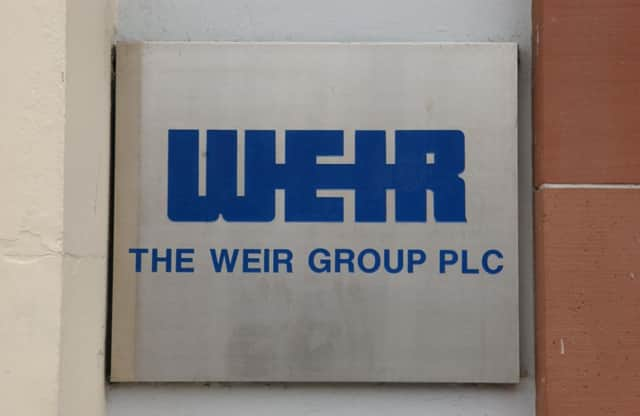Investment to falter after Yes vote - Weir boss


Keith Cochrane, chief executive of the Weir Group, also indicated the firm’s Glasgow headquarters could be forced to relocate outside Scotland after independence.
But the claims were played down by the pro-independence Business For Scotland, which insisted a strong “Scotland brand” will give companies a boost in international markets.
Advertisement
Hide AdAdvertisement
Hide AdMr Cochrane was addressing a meeting of the Institute of Chartered Accountants of Scotland (Icas) in Edinburgh.
The Weir Group has already warned that independence would carry “substantial risks” after commissioning an independent study.
The firm has warned it would face an extra £4 million in tax costs with independence. On the prospect of the firm’s HQ remaining in Scotland after a Yes vote, he said: “The honest answer is, I don’t know.”
He was pressed on the prospect of relocation by host Kirsty Wark and added: “I can’t give you an answer to that question.”
The business chief continued: “Until those independence separation negotiations can be finalised, we won’t know what the outlook will be and what it means for business, what it means for us individually. What you can say, what I do know, is that it will create a substantial hiatus in future investment.
“When we have to ask ourselves such basic questions as what currency revenues our projects are going to be undertaken in, that gives you pause for significant thought.”
He added: “And even after negotiations are settled, foreign investors may be wary of committing to Scotland for a couple of years as they wait to see how the newly independent economy performs.”
Advertisement
Hide AdAdvertisement
Hide AdThe Glasgow-based engineering firm was founded in 1871 and is now Scotland’s largest industrial business.
It operates in more than 70 countries around the world and currently employs 15,000 people globally with a market capitalisation approaching £6 billion.
Mr Cochrane said his firm’s choice to be headquartered in Glasgow meant that its Scottish operations run at a loss, which is offset by profits made elsewhere.
“At the moment, we have the option to offset losses in one part of the UK with the profits we make in other parts.
“It’s a system called group relief and I am sure it will be familiar to many of my fellow chartered accountants in this room. But group relief couldn’t survive independence because the current UK tax arrangements would no longer exist.”
But David Cairns, executive chairman of Prismtech, and a member of the pro-independence Business for Scotland group, said: “Like Keith Cochrane, I think that growth policies rather than austerity measures are what Scotland’s businesses need.”
SEE ALSO